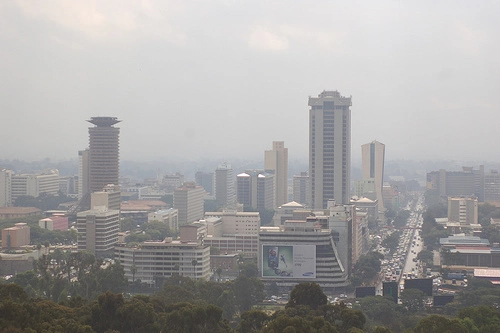Nairobi ranks as Africa’s third-most polluted city, according to new data from Swiss air quality monitor IQAir. The report raises fresh concerns about urban pollution, public health, and policy response in Kenya’s capital.
The city sits 83rd on the global list with an Air Quality Index (AQI) reading of 92. This score falls in the ‘moderate’ category but is far higher than the World Health Organization’s annual guideline of 5 µg/m³ PM. Experts warn that continued exposure to polluted air increases risks for children, the older, and those with chronic diseases.
The AQI system makes pollution levels easier to track. A score of 0–50 counts as ‘good’. A range of 51–100 means ‘moderate’. Levels from 101–150 are ‘unhealthy for sensitive groups’. A reading between 151–200 signals ‘unhealthy’. The 201–300 bracket means ‘very unhealthy’. Anything above 301 is classified as ‘hazardous’.
With Nairobi at 92, the city edges close to levels that threaten sensitive groups. Residents already report rising cases of asthma, chest problems, and other respiratory illnesses. Medical experts link these to air filled with dust, smoke, and car emissions.
The findings have put pressure on authorities. Activists want firm action on emissions from vehicles, factories, and waste burning. They also call for investment in greener transport, cleaner energy, and stricter enforcement of air quality laws. Without action, Nairobi risks sliding further down global rankings and putting millions at greater health risk.
Also Read:
President Ruto Leaves for Japan to Attend TICAD 9 Summit
Raila Faces Resistance Over Proposal to Devolve Education
Nairobi ranked 3rd most polluted City in Africa

Leave a Comment












